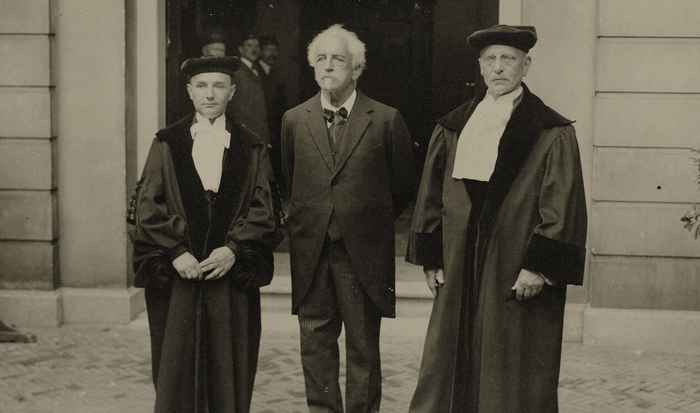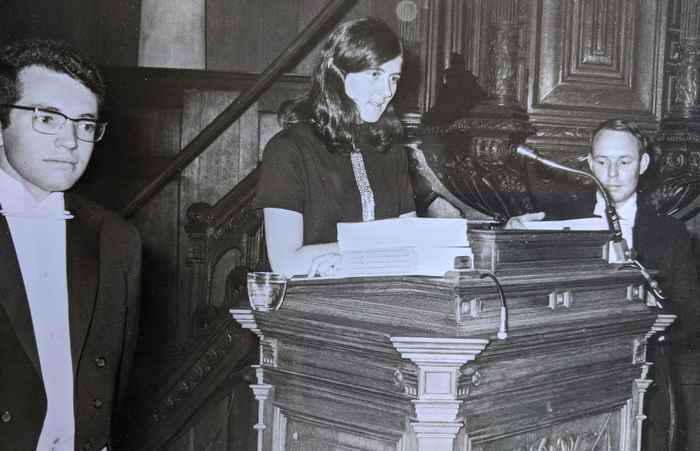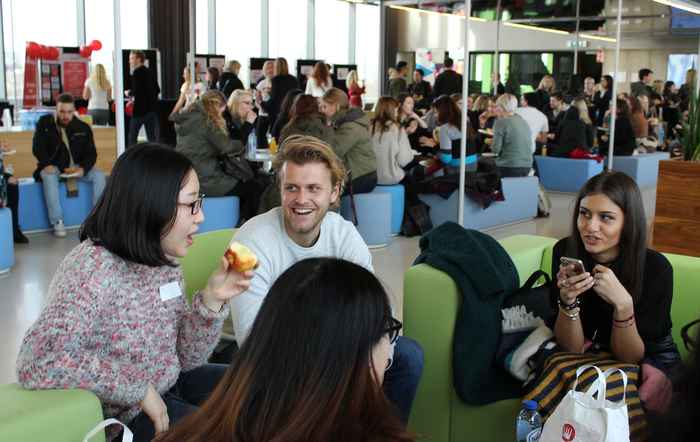Honouring the past, delivering the future
The entire history of our 100 year old faculty is described in the special centennial book Honouring the past, delivering the future (ISBN 978-90-821836-7-2).

1922 - The first generation
Following decades of discussion and debate, in 1922, due to the growing demand in the Netherlands for theoretical education in commerce, the Faculty of Commerce was established as the sixth faculty at the University. The Amsterdam merchant community and the Amsterdam business community are also involved in the foundation of the Faculty. But the three founding fathers of the Amsterdam Faculty, Posthumus, Frijda and Limperg, emphasise that a scientific approach is necessary and that Economics and Business Economics cannot exist independently of each other.

1947 - The second generation
The Faculty, having suffered greatly during World War II, is starting to rebuild in post-war Amsterdam. Amsterdam has ambitious plans to rebuild and greatly expand its University, which will also benefit the Faculty. The ‘Stichting voor Economisch Onderzoek’ (SEO), established in 1949, is of great significance in this regard. The aim of the SEO was to stimulate applied economic research, in which mainly independent research is carried out on behalf of third parties. Those 'third parties' can be companies, but also government institutions, including those from the municipality of Amsterdam. Econometrics entered the Faculty's curriculum in the 1950s, taught by Pieter de Wolff, who at the time was internationally renowned in that field.
1972 - The third generation
Turbulent times. Amsterdam's influence on the University has been drastically reduced. A process of democratisation at the University has started. At the Faculty this process acquires its own dynamics. The Faculty is the first faculty to admit students to faculty meetings as audience members and also gives them the right to advise.

1997 - The fourth generation
Compared to 1972, the Faculty has again changed significantly in 1997. The emancipation of women at the Faculty is a fact. The personal computer and the WWW make their appearance. Research is now at least as important as education. The ‘Modernisering Universitaire Bestuursstructuur’ (MUB Act) puts an end to the democratisation ideas of the 1970s. Universities and faculties will be given a hierarchical and more business-like management structure, necessary to accommodate the changes caused by computerisation and automation and to further professionalise staff and academic personnel. But the biggest change that lies ahead for the Faculty is internationalisation. English is gradually becoming the language of instruction within study programmes and the majority of students will have a non-Dutch background in the near future.

2022 - The fifth generation
The Faculty has benefited enormously from Amsterdam's international image as a city and home to the University of Amsterdam. Compared to 1997, the number of students has grown 150% to 6,792. Now featuring a large contingent of students and academic staff from abroad, UvA Economics and Business (EB) prepares for the future by incorporating digitisation, analytics and Big Data into the curriculum of both the Amsterdam School of Economics (ASE) and the Amsterdam Business School (ABS).